The Sacred Valley of Peru is a mesmerizing tapestry of ancient Inca sites, vibrant cultural traditions, and breathtaking natural beauty. Nestled in the Andes, this captivating region beckons travelers to uncover its secrets, from the richly-hued textiles of Chinchero to the enigmatic salt ponds of Maras. Whether you’re marveling at Moray’s unique agricultural terraces or exploring the impressive stone fortifications of Ollantaytambo, the allure of the Sacred Valley is undeniable. And at the heart of it all lies Pisac, a bustling marketplace where the past and present converge, offering a tantalizing glimpse into Peru’s enduring cultural heritage.
Key Points
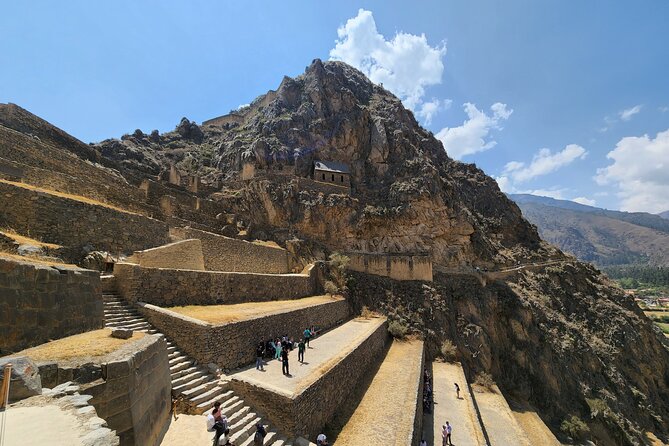
- The Sacred Valley of the Incas features a rich cultural heritage, with well-preserved archaeological sites like Chinchero, Moray, Maras, Ollantaytambo, and Pisac.
- Chinchero is renowned for its Andean textile manufacturing and the Inca ruins that showcase the region’s cultural significance.
- Maras is home to the Salineras de Maras, an ancient salt-harvesting site that offers a unique and captivating visitor experience.
- Moray’s enigmatic concentric terraces reveal the Incas’ sophisticated understanding of microclimates and agricultural practices.
- Ollantaytambo serves as a significant Inca stronghold, showcasing impressive stone terraces and fortifications that highlight the civilization’s engineering prowess.
Overview of the Sacred Valley
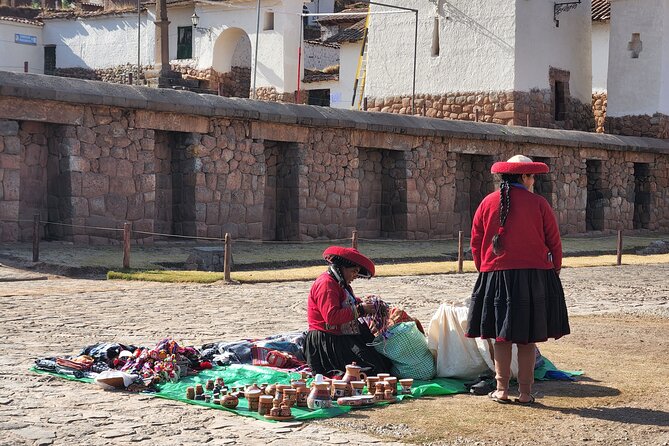
The Sacred Valley of the Incas offers visitors a diverse array of tourist attractions, ranging from archaeological wonders to historical and cultural centers.
Key locations include Chinchero, Pisac, Ollantaytambo, Maras, and Moray.
This valley was significant for the Incas, serving as an agricultural, spiritual, and political center.
Visitors can explore the region’s rich Inca heritage through its well-preserved archaeological works, providing an enriching experience.
The valley’s natural beauty and cultural wealth make it a must-visit destination for those seeking to enjoy the legacy of the Inca civilization.
You can also read our reviews of more tours and experiences in Cusco.
Exploring Chinchero’s Textile Heritage
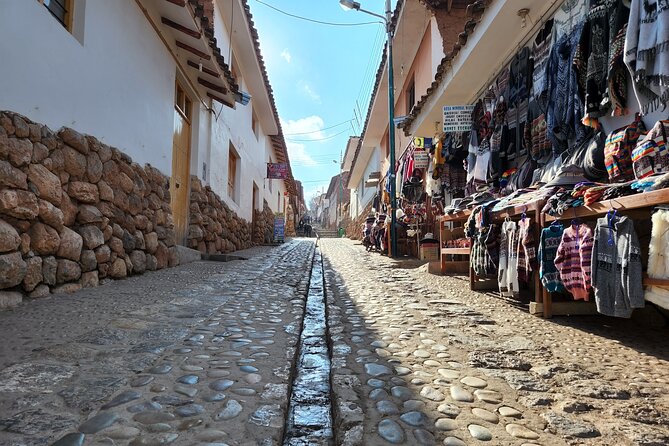
One of the key destinations on the Sacred Valley tour is Chinchero, an Andean textile manufacturing center and archaeological complex.
Visitors can explore the local weaving traditions and observe skilled artisans at work, creating vibrant textiles using time-honored techniques. The Chinchero Textile Center showcases the region’s rich textile heritage, allowing visitors to witness the entire process, from spinning the wool to dyeing the fabric and weaving the intricate patterns.
Beyond the textiles, Chinchero also offers an archaeological site with Inca ruins, providing a glimpse into the area’s cultural and historical significance for the Inca civilization.
Marveling at the Salineras De Maras
Upon reaching the Salineras de Maras, visitors are immediately captivated by the stunning sight of thousands of salt ponds sprawled across the hillside. These ancient salt evaporation ponds, dating back to Inca times, create a mesmerizing patchwork of brilliant white against the ochre earth. Visitors can observe the local workers harvesting salt using traditional methods, a process that has remained unchanged for centuries. The contrast of the vibrant colors and the traditional techniques makes the Salineras de Maras a truly unique and unforgettable experience.
| Salt Harvesting Process | |||
|---|---|---|---|
| 1. Collection | 2. Drying | 3. Packaging | 4. Distribution |
Uncovering the Mysteries of Moray
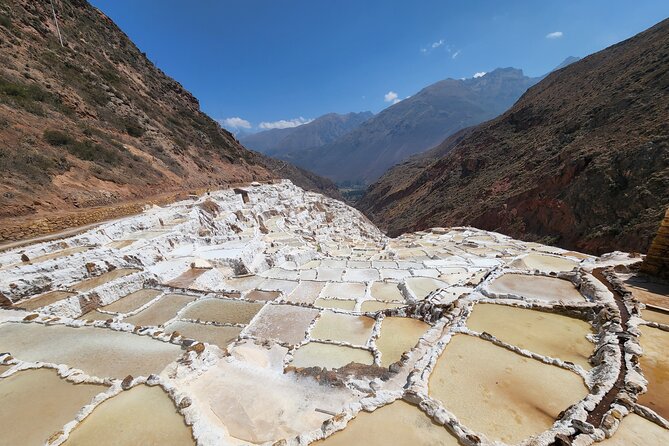
After exploring the captivating Salineras de Maras, visitors soon find themselves drawn to the archaeological wonders of Moray.
This unique Inca site features a series of large, terraced circular depressions, believed to have been used as an agricultural experimental laboratory.
Descending into the site, one is struck by the ingenious design and the stunning natural landscape that surrounds it.
The concentric terraces were likely used to study the effects of different microclimates on crop cultivation, showcasing the Incas’ impressive understanding of agriculture and environmental adaptation.
Moray’s enigmatic ruins continue to captivate visitors, offering a glimpse into the sophisticated agricultural practices of this ancient civilization.
Discovering Ollantaytambo’s Inca Stronghold
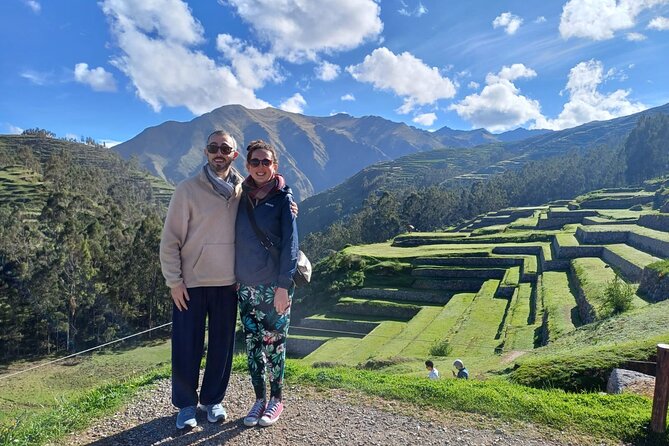
As the journey through the Sacred Valley continues, visitors arrive at the captivating Inca stronghold of Ollantaytambo. This ancient site, steeped in Inca heritage, offers a glimpse into the ingenuity and resilience of the Inca civilization.
The impressive stone terraces, massive fortifications, and intricate stonework evoke a sense of:
- Awe at the engineering prowess of the Incas.
- Reverence for the cultural and spiritual significance of the site.
- Curiosity about the daily life and rituals that once unfolded here.
- Appreciation for the enduring legacy of the Inca Empire.
Ollantaytambo’s strategic location and architectural marvels captivate visitors, leaving them with a deeper understanding of the Inca legacy that permeates the Sacred Valley.
Taking in Pisac’s Cultural Richness
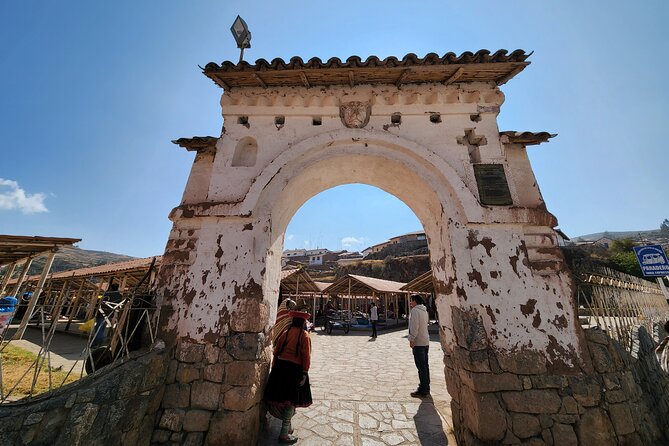
Visitors to the Sacred Valley find themselves enchanted by the vibrant cultural tapestry of Pisac. This Inca town, nestled among towering peaks, showcases the region’s rich heritage through its artisanal markets, archaeological wonders, and spiritual traditions. Visitors can browse the bustling marketplace, examining intricate textiles, ceramics, and jewelry crafted by local artisans. The Inca ruins of Pisac, perched atop a mountainside, offer a glimpse into the engineering feats of the ancient civilization. Nearby, the stunning Moray terraces and the salt pans of Maras provide further opportunities to take in the valley’s natural and cultural riches.
| Attraction | Duration | Highlights |
|---|---|---|
| Pisac Artisan Market | 1-2 hours | Textiles, ceramics, jewelry, traditional handicrafts |
| Pisac Inca Ruins | 1-2 hours | Terraced agricultural fields, ceremonial centers, architectural marvels |
| Moray Terraces | 30-60 minutes | Unique concentric circular terraces, believed to be an Inca agricultural experiment site |
| Maras Salt Pans | 30-60 minutes | Traditional salt extraction methods, stunning visual landscape |
Logistics and Accessibility
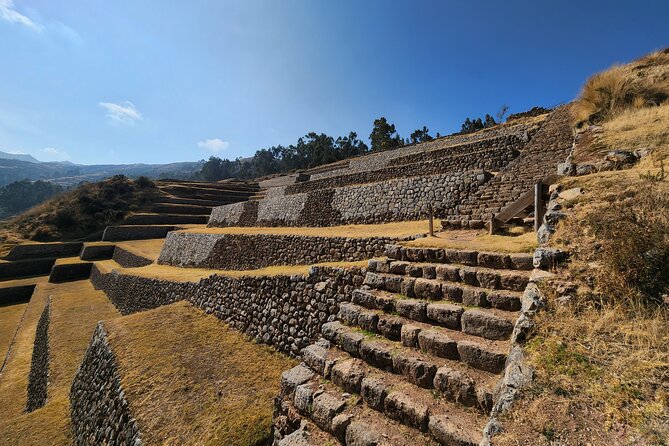
The Sacred Valley tour starts its journey from the historic center of Cusco.
Travelers are picked up from their hotels and brought to the meeting point at Plaza Regocijo. The tour concludes just a block away from Cusco’s main square, allowing easy access to other attractions.
While the tour isn’t wheelchair accessible, most travelers can participate.
Here are 4 key things to keep in mind:
- Comfortable walking shoes are a must, as the sites involve uneven terrain.
- Bring sun protection, as the Andean sun can be quite harsh.
- Hydration is crucial, so pack plenty of water.
- Be prepared for changes in altitude, which can affect some individuals.
Tour Highlights and Inclusions
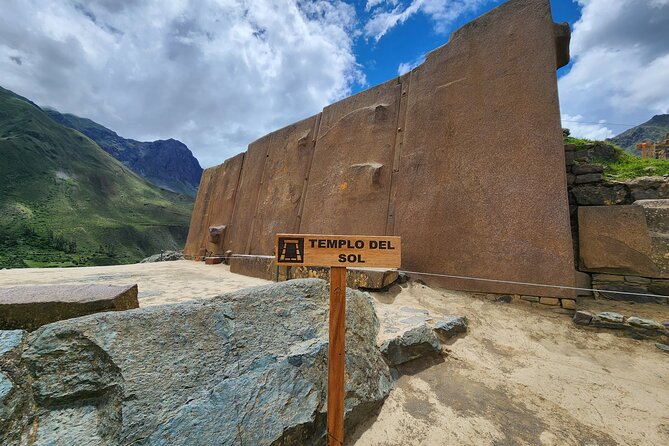
On this Sacred Valley tour, travelers begin their journey at Chinchero, an Andean textile manufacturing center and archaeological complex. Here, they’ll spend around 45 minutes exploring the site, though admission tickets aren’t included.
Next, they’ll visit Maras, where they can observe the ancient salt extraction wells of Salineras de Maras for 30 minutes. Admission to this site is free.
The tour also includes stops at Moray and Ollantaytambo, providing further insights into Inca heritage.
Throughout the day, travelers will enjoy a buffet-style lunch, though cold drinks aren’t included.
With an air-conditioned vehicle and an English and Spanish-fluent guide, this comprehensive Sacred Valley tour offers an enriching cultural experience.
Frequently Asked Questions
Is the Tour Suitable for Families With Young Children?
The tour may not be the best fit for families with young children. The long duration, lack of wheelchair accessibility, and stops at archaeological sites could pose challenges for younger travelers. However, the tour may be enjoyable for older children interested in Inca history.
Can Vegetarian or Gluten-Free Dietary Options Be Accommodated?
The tour can accommodate vegetarian and gluten-free dietary needs, but travelers should inform the tour operator in advance. Lunch is a buffet-style meal, allowing guests to select suitable options.
Are There Any Additional Costs or Optional Activities During the Tour?
The tour includes the entrance fees for Maras and Moray, but additional optional activities like visiting the Chinchero textile center have separate fees. Travelers should budget for any optional stops they wish to make during the tour.
What Is the Best Time of Year to Visit the Sacred Valley?
The best time to visit the Sacred Valley is during the dry season, from May to September. This period offers clear skies, pleasant temperatures, and fewer crowds, making for an optimal sightseeing experience.
Can the Tour Be Customized or Personalized to Individual Interests?
The tour can be customized to individual interests, allowing travelers to focus on the specific sights and activities that appeal to them most. Personalization is available upon request, though it may incur additional costs.
Recap
The Sacred Valley of Peru offers a captivating blend of ancient Inca history, vibrant cultural heritage, and breathtaking natural scenery. From the stunning textile arts of Chinchero to the mysterious terraced depressions of Moray, this region invites travelers to enjoy the richness of Peru’s past and present. With its diverse attractions and accessibility, the Sacred Valley promises an unforgettable exploration of one of South America’s most enchanting destinations.
More Tour Reviews in Cusco
- From Cusco: Uros Excursion to Uros Island – Taquile + Lunch.
- Adventure 13D in Peru and Bolivia – Machu Picchu |Hotel☆☆☆☆|
- Cusco, Sacred Valley, Machupicchu, Rainbow Mountain in 6 Day
- From Cusco: Ausangate Trek + Rainbow Mountain 6d/5n
- From Cusco: Machu Picchu Fantastic 4D/3N + Hotel ☆☆
- The New Inca Routes
Not for you? Here's more things to do in Cusco we have recnetly reviewed
- 2 Best Canoe And Kayak Experiences In Cusco
- 2 Best Tours In Paucartambo
- 20 Best 2 Day Tours In Cusco
- 20 Best 3 Day Tours In Cusco
- 20 Best 4 Day Tours In Cusco
- 9 Best Dining Experiences In Cusco
- 20 Best Full-Day Tours In Cusco
- 4 Best Coffee Tours And Tastings In Cusco
- 9 Best Massage And Relaxation Services In Cusco
- 8 Best Dinner Tours In Cusco
- 25 Best Lunch Experiences In Cusco
- 19 Best Food Tours In Cusco
